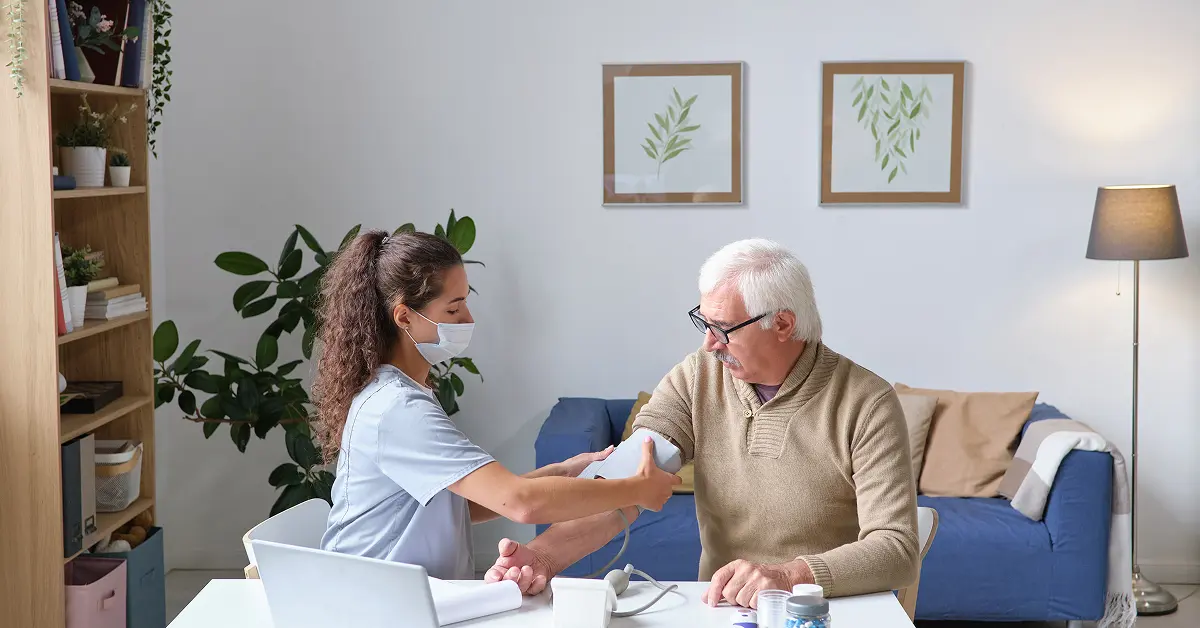In the Indian healthcare landscape, home-based Patient Care has emerged as a crucial service, especially for elderly patients, those with chronic conditions, or individuals recovering from surgery. Among the most vital aspects of such care is safe medication support. Administering medications correctly can make the difference between steady recovery and severe complications. That’s why trained at-home patient care professionals are now playing a significant role in ensuring patients follow their prescribed treatment plans accurately and safely.
This blog explores the critical components of medication support provided by home healthcare professionals, their benefits, and why Indian families increasingly rely on this service.
The Importance of Medication Safety at Home
Incorrect medication use is one of the leading causes of hospital readmissions and preventable complications, especially among the elderly. Some common issues include:
- Skipping doses or double-dosing
- Confusion over drug names or dosages
- Mixing medications with adverse effects
- Lack of awareness about side effects or drug interactions
These risks are amplified when patients self-administer medications without supervision. This is where professional medication support at home becomes indispensable.
Key Features of Safe Medication Support at Home
At-home patient care providers offer a wide range of services that ensure a patient receives the right medication, at the right time, in the right dose. Here's how they ensure medication safety:
Personalized Medication Management Plans
Home care professionals develop customized medication schedules based on the physician’s prescription. They consider factors like:
- Patient’s age, weight, and medical history
- Medication timing in relation to food and sleep
- Comorbid conditions like diabetes, hypertension, or kidney issues
They also ensure all prescriptions and over-the-counter drugs are properly coordinated to avoid harmful interactions.
Timely Administration and Reminders
In many Indian households, elderly patients may forget or mismanage their medication timings. Trained caregivers offer timely reminders or directly administer the medications as required. Some even maintain detailed logs for family members and doctors to track adherence.
This becomes especially valuable in:
- Post-surgical recovery
- Neurological conditions like Parkinson’s or Alzheimer’s
- Long-term antibiotic or steroid use
Proper Storage and Handling of Medicines
Home caregivers ensure that medicines are stored as per recommended conditions—whether that means refrigeration, avoiding humidity, or keeping them out of direct sunlight. This prevents loss of potency or harmful side effects.
They are also trained to safely handle injections, eye/ear drops, and inhalers, ensuring that medications are not only taken on time but also used correctly.
Monitoring for Side Effects and Interactions
One of the biggest dangers of unsupervised medication use is the risk of side effects or adverse drug interactions. Patient care professionals are trained to monitor symptoms that may indicate an issue, such as:
- Nausea, dizziness, or rashes
- Sudden changes in blood pressure or sugar levels
- Mental confusion or fatigue
They can immediately alert the family or medical professionals for timely intervention.
Coordination with Doctors and Pharmacists
In India, home care teams often serve as a communication bridge between patients and their doctors. Whether it’s refilling prescriptions, adjusting dosages, or reporting progress, they ensure seamless coordination with healthcare providers. This also avoids unnecessary clinic visits or hospital readmissions.
Education and Support for Family Members
Besides administering medications, caregivers educate family members on:
- Emergency protocols in case of a missed or double dose
- Recognizing warning signs
- Basic first-aid for reactions
This shared knowledge gives peace of mind to working professionals who may not always be home to monitor a loved one’s care.
Who Benefits the Most from Medication Support at Home?
While anyone undergoing treatment at home can benefit, the following groups especially need this service:
- Senior Citizens: Many elderly patients are on multiple medications (polypharmacy), increasing the risk of errors.
- Post-Surgery Patients: Patients recovering from orthopaedic, cardiac, or abdominal surgeries require strict medication compliance.
- Chronic Disease Patients: Diabetics, heart patients, or those with kidney/liver disease need constant monitoring.
- Neurological Conditions: Stroke survivors or those with cognitive decline often struggle with medication memory.
- Paediatric Patients: Parents may need professional help to manage antibiotics, vaccinations, or special formulations.
Why Indian Families Prefer At-Home Medication Support
In cities like Mumbai, Delhi, Bengaluru, and Hyderabad, more families are turning to at-home healthcare services due to their convenience, affordability, and the emotional comfort they bring to patients. Some key advantages include:
- Reduced Hospital Visits: Avoid frequent trips for simple injections or IVs.
- Better Recovery at Home: The comfort of familiar surroundings accelerates healing.
- 24/7 Monitoring: Round-the-clock support ensures no dose is ever missed.
- Peace of Mind for Families: Especially important for NRIs with aging parents in India.
How to Choose a Safe Medication Support Provider
To ensure you're hiring a reliable professional, check for:
- Certified Nursing Staff: With experience in medication administration.
- Background Verification: From a reputed home care agency.
- Emergency Training: Knowledge of CPR, allergic reactions, and medical emergencies.
- Transparent Pricing: Monthly packages with clear inclusions and exclusions.
- App-Based Monitoring: Digital tracking of dosage logs and vitals.
Always ask for references and ensure proper onboarding by a supervising doctor or nurse.
Final Thoughts
In the evolving Indian healthcare ecosystem, at-home patient care services are no longer a luxury—they are a necessity. Safe medication support by trained professionals not only improves treatment outcomes but also enhances the quality of life for both patients and their families. Whether you're caring for an aging parent, a child with special needs, or someone recovering from illness, choosing professional home-based medication support is a step toward safer, smarter healthcare.
Contents
Our 24*7 services
Latest Posts
- What Is Respite Care and Why Is It Important
- Affordable home care for senior citizens in India
- Caring for Seniors with Dementia or Alzheimer's at Home
- Senior Caregiving A Guide for Every Family
- How to Write a Caregiver Resume That Gets You Hired
- How Care After Hospital Discharge Speeds Up Recovery at Home
- How to Get Home Health Care for Seniors Through Medicare
- What Does a Senior Citizen Caregiver Really Do at Home
- How to Care for Elderly Parents with Alzheimer’s or Dementia
- How to Get 24-Hour Care for Seniors at Home



